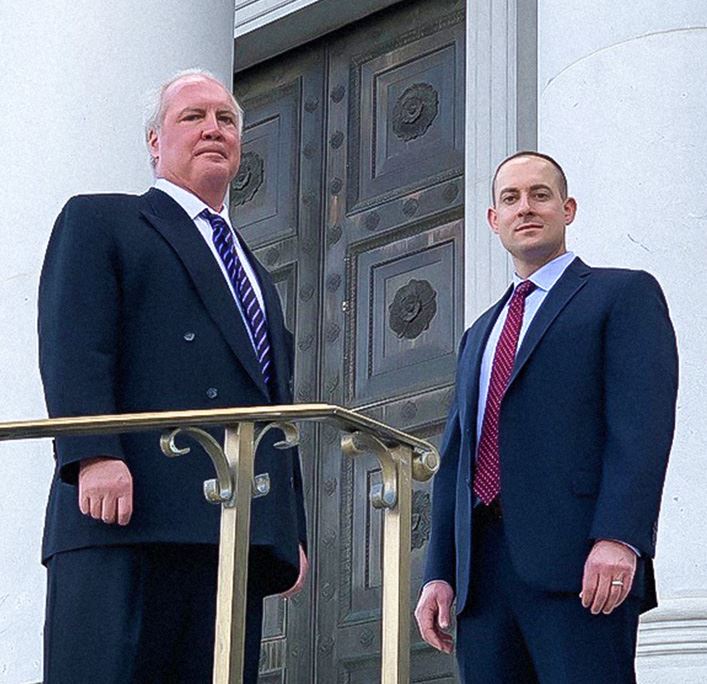
Federal Criminal Defense Lawyers in Denver
Protect Yourself from Serious Charges
Facing a charge from the federal government can be intimidating. Federal cases are more complex than state misdemeanors or felonies. Many times federal cases carry additional or more significant penalties if you are convicted.
Fortunately, the Denver federal criminal defense lawyers at Fife Luneau, P.C. are knowledgeable and skilled enough to effectively handle cases in federal court. Let our 30 years of combined experience work for you as we prepare a forceful defense for your federal case.
Cases that Prosecutors Can File in Federal Court
A federal court hears cases when they violate federal law. Sometimes, the circumstances of a crime may cause a prosecutor to file the case in federal court instead of state court.
Some of the crimes that a federal court can hear include:
- Some types of drug crimes, such as drug manufacturing, trafficking, or sales
- Federal controlled substance violations
- Weapons charges
- Internet crimes, such as cyberstalking, child pornography, or hacking
- White collar crimes including antitrust violations, fraud, and identity theft
- Immigration crimes
- Copyright or trademark infringement and other intellectual property crimes
Federal prosecutors are aggressive and focused on winning a conviction in the case. You need someone equally dedicated in your corner. Contact our Denver federal criminal defense attorneys at (720) 408-7130 today.
Drug Crimes & Federal Court
A drug possession charge can sometimes be moved into federal court if federal authorities have an interest in your case. In situations like this, you need the experience of a Denver criminal defense attorney from Fife Luneau, P.C. to do everything possible to keep local cases in state court.
Why Choose Fife Luneau, P.C. for Federal Criminal Defense
When facing federal criminal charges, it's crucial to have experienced and dedicated legal representation on your side. At Fife Luneau, P.C., our team of federal criminal defense lawyers in Denver has a proven track record of successfully defending clients against a wide range of federal charges.
Here's why you should choose us for your federal criminal defense:
- Extensive Experience: Our attorneys have years of experience handling federal cases and are well-versed in the complexities of federal law.
- Strategic Approach: We develop customized defense strategies tailored to the unique circumstances of each case, ensuring the best possible outcome for our clients.
- Strong Advocacy: We are aggressive advocates for our clients, fighting tirelessly to protect their rights and achieve favorable results.
- Thorough Investigation: We leave no stone unturned in investigating the facts and evidence of your case, uncovering any potential weaknesses in the prosecution's arguments.
- Expert Resources: We have access to a network of experts in various fields who can provide valuable insights and testimony to support your defense.
- Client-Centered Approach: We prioritize open communication and collaboration with our clients, keeping them informed and involved every step of the way.
Don't leave your future to chance. Contact Fife Luneau, P.C. today to schedule a consultation with our experienced federal criminal defense team.
A federal case can result in large fines, federal prison sentences, and significantly impact your ability to live your future the way you planned. Protect yourself in federal court with our experienced Denver criminal attorneys. Contact us today at (720) 408-7130.

-
 Acquitted of All Charges DUI Acquittal
Acquitted of All Charges DUI Acquittal -
Dismissed DUI, DWAI, Careless Driving
-
Dismissed DUI, DWAI
-
Dismissed Driver’s License Interlock Violation Hearing
-
 Dismissed Attempted Murder, Assault, Menacing with a Deadly Weapon, Distribution of Marijuana
Dismissed Attempted Murder, Assault, Menacing with a Deadly Weapon, Distribution of Marijuana
BECAUSE RESULTS MATTER
Recent Case Victories
Fife Luneau, P.C. is one of the most respected law firms when it comes to DUI and criminal defense cases. We have a remarkable track record up and down the Front Range, successfully handling some of the most complex cases.
- DUI Acquittal
- DUI, DWAI, Careless Driving
- DUI, DWAI
- Driver’s License Interlock Violation Hearing
- Attempted Murder, Assault, Menacing with a Deadly Weapon, Distribution of Marijuana


Have Questions?
-
How should I choose a Denver criminal defense attorney?First and foremost, your lawyer should be confident and knowledgeable in their practice. You should always feel comfortable with discussing the details of your situation and your freedom and your rights should be your counsel’s top priority. At Fife Luneau, P.C., our team has a true passion for what we do, and our experience and zealous advocacy is a testament to this. We have a proven track record for results and will always fight for your best interest.
-
How much are your legal fees?Fife Luneau, P.C. handles cases on an upfront flat-fee schedule that is determined based on how severe your charges, how complex the case, and whether you need to go to trial. We will discuss all issues with you beforehand, and once you agree to our fees, we’ll hold your money in a trust on your behalf. This way we can focus on your matter and not on money. Our firm also accepts all major credit cards.
-
After an arrest, what are my rights?Every U.S. citizen is granted certain rights by the Constitution. These include the face that you are innocent until proven guilty, and that burden is put on the prosecution. After you have been charged, you have the right to a public trial, skilled counsel of your choosing or a court-appointed lawyer, if needed, the right to remain silent to protect yourself from incrimination, the right to cross-examine the accused, the right to testify, or not, and the right to an appeal.

